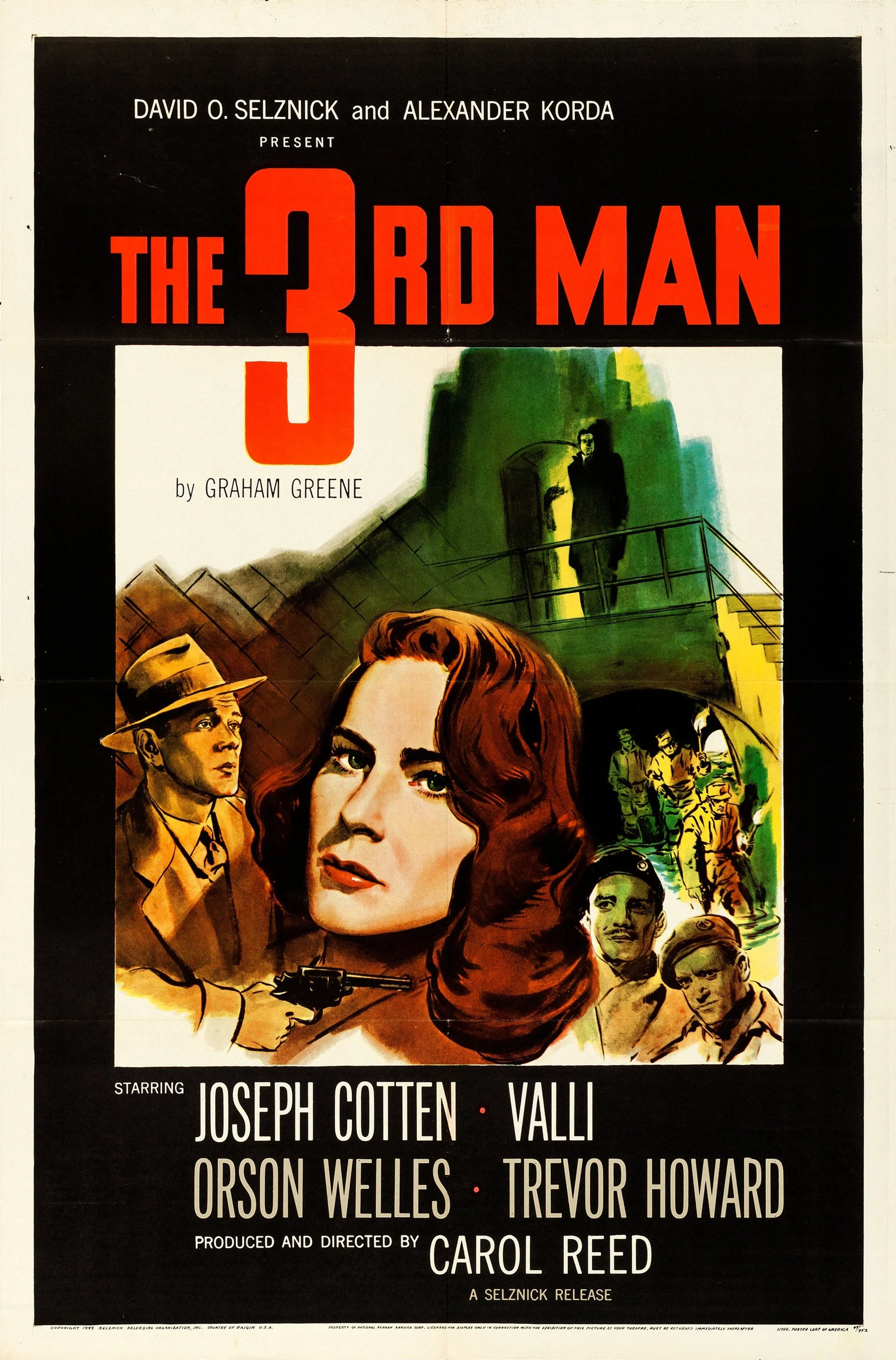Director: Carol Reed
Cast: Joseph Cotten, Alida Valli, Orson Welles, Trevor Howard
Have I Seen it Before: Oh, sure. You don’t write three—count ‘em, three—books about Orson Welles without wandering into this one a few times. Still not entirely sure why I didn’t include it in the massive Orson Welles re-watch I did before publishing The Once and Future Orson Welles, other than the fact that Welles didn’t direct the movie. But it should have been, right under scenes from Citizen Kane (1941), its scenes from this one that always make it into quick and dirty Welles retrospectives, along with radio clips from the War of the Worlds, or maybe a commercial or two for Paul Masson.
Did I Like It: When you think of the cream of the crop of film noir, you might want to swing your rhetorical arms for Peter Lorre, or Edward G. Robinson (really, there is a fine line between a gangster movie and film noir, although that Venn diagram can resemble an oval), but this is the A-list standard of the genre.
The cast is perfect, and I’m only kind of talking about Welles. You put a-list talent in a movie, and nearly any genre can transcend. Or, at least, it used to. Throw in a score that flies in the face of every convention, and you’re practically guaranteed to have a classic on your hands.
I was talking with another writer in recent years. They wrote crime novels (or, at least, tried to) and railed at how The Third Man’s crime story doesn’t quite add up. I get talked at a lot—or at least, more frequently than average—about Orson Welles films, and it often starts to resemble the grown ups in Peanuts cartoons trying to talk to me. But here, I could kind of see his point, Martins (Cotten) search for what happened to Harry Lime (Welles) meanders a bit in the middle, to where true enthusiasts of the genre might indeed lose patience.
But you know what? I’ll tell you what I told him. Why does that matter? So much Film Noir is all about mood, and between this film’s zither music and Welles eventual entrance into the picture, there’s more than enough mood to go around. The plot is fine, but it is absolutely not the reason you should have shown up in the first place.

